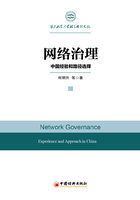
第五节 结论与讨论
网络空间在今天已经成为了一个全新的政治空间。与现实政治空间相比,网络政治空间具有身体不在场互动、时空压缩与伸延并存、海量政治信息涌动、政治动员即时化、政治网络扁平化等特性。这些新的空间特性,导致政治参与呈现出新的实践形态,网络政治参与已经成为一种与现实政治参与同样重要的政治实践。本研究结合Bimber等学者对网络政治参与内容的界定(搜寻政治政策信息、与他人讨论政治议题、表达政治意见)和Polat提出的互联网影响政治行为的3个维度(作为信息资源库的互联网、作为互动空间的互联网、作为虚拟行动领域的互联网),提出网络政治参与的3维度结构(网络政治信息获取、网络政治意见交流与表达、网络政治行动)。因子分析结果较好地验证了这一设想。研究发现,目前我国城市居民的网络政治参与程度总体水平不高,即使参与程度最高的“网络政治信息获取”行为,也只有1/4左右的城市居民经常或较多参与。具体比较3种网络政治参与形式,网络政治信息获取、网络政治意见交流与表达的参与程度相对较高,而网络政治行动的参与程度则较低,经常或较多参与网络政治行动的城市居民只有不到一成,意味着我国城市居民的网络政治参与方式以网络政治信息获取和网络政治意见交流与表达为主,实际政治行为的参与程度很低。因此,对于互联网对政治参与的促进作用,我们不能有过于简单的乐观态度,互联网使用并不意味着政治参与程度的必然提升。至少在目前,我国城市居民的网络政治参与程度还处在一个非常低的水平上。
研究发现,人口特征变量和网络使用变量对网络政治参与没有显著影响。对此,国外学者也有类似发现。如Gibson等人通过其在英国的研究发现,尽管白人女性的线下政治参与程度低于男性,但在网络空间中,政治参与并没有明显的性别差异。(51)Quintelier等人发现,网络使用时间对青少年的政治参与并无直接影响。(52)这些均与本研究的发现基本一致。笔者认为,人口特征变量和网络使用变量之所以对网络政治参与没有显著影响,相当程度上是因为互联网作为一个复合媒介呈现出来的全新的二元交织时空结构和时空特性,转变了网络行为的行为逻辑。由于互联网的推动,现实社会生活中有着确定物理和社会边界的区域化行为场所,正越来越被物理地点缺场的虚拟场所取代,从而导致场所边界的模糊甚至消失。由此,人们在网络空间中的社会行为,也成为一种发生在边界之上或者说跨越边界的活动,并呈现出一种不确定、跨边界、碎片化的特征,从而导致对现实政治参与来说十分重要的人口变量和媒介使用变量的影响作用,变得模糊和不确定。Polat认为,尽管网络的使用大大增加了获取政治信息的可能性和便捷性,但并不一定导致政治参与的增加,(53)因为获取政治信息与政治参与行为仅仅间接相关,网络使用程度的增加并不必然导致政治参与行为的增加。
本研究从公民自愿模型等理论视角,强调城市居民的政治技能、政治兴趣、政治效能感、社团参与程度和政治观念对网络政治参与有正向影响。从回归分析结果来看,除社团参与外,公民技能、政治兴趣、政治效能感和政治观念对网络政治参与均有或大或小的解释力。但值得注意的是,与我们假设的公民技能、政治兴趣、政治效能感、社团参与和政治观念均对网络政治参与有稳定的正向作用不同,分析结果显示出上述变量与网络政治参与之间的关系呈现出较为复杂的情形。表现在:第一,同一个自变量对三类网络政治参与行为的影响程度不同。例如,内在政治效能感对网络政治行动和网络政治信息获取有显著影响,但对网络政治意见交流与表达的影响却不显著。第二,同一个自变量对三类网络政治参与行为的影响方向不一致。例如,政治兴趣对网络政治信息获取和网络政治意见交流与表达有显著的正向影响,但对网络政治行动的影响方向却为负向。笔者认为,之所以出现这种复杂情形,有可能是因为在网络情境下,政治资源、政治动机、社团参与、政治观念与政治参与之间的关系更为复杂,政治参与会受到更多变量的影响,因而与政治资源、政治动机、社团参与、政治观念之间的关系缺乏统计上的稳定性。如果是这样,则意味着需要进一步拓展理论视野,将更多的变量纳入研究架构中。
(1)中华人民共和国国务院新闻办公室.《中国互联网状况》白皮书[EB/OL]. http://news.xinhuanet.com/politics/2010-06/08/c_12195221.htm.
(2)Bruce Bimber. The Study of Information Technology and Civic Engagement [J]. Political Communication, 2000(17): 329-334.
(3)M. K. Jennings, V. Zeitner. Internet Use and Civic Engagement: A Longitudinal Analysis [J]. Public Opinion Quarterly, 2003, 64(3): 331-334.
(4)[美]诺曼·H.尼,西德尼·伏巴.政治参与[M]//格林斯坦,波尔斯比.政治学手册精选.储复耘,译.北京:商务印书馆,1996:290.
(5)[美]诺曼·H.尼,西德尼·伏巴.政治参与[M]//格林斯坦,波尔斯比.政治学手册精选.储复耘,译.北京:商务印书馆,1996:290.
(6)[美]塞缪尔·P.亨廷顿,琼·纳尔逊.难以抉择——发展中国家的政治参与[M].汪晓寿,等,译.北京:华夏出版社,1989:5.
(7)[美]格林斯坦,波尔斯比.政治学手册精选[M].储复耘,译.北京:商务印书馆,1996:290.
(8)[美]戴维·伊斯顿.政治生活的系统分析[M].王浦劬,译.北京:华夏出版社,1999.
(9)李元书,刘昌雄.政治参与:涵义、特征和功能[J].学术交流,1995(6):64-70.
(10)杨光斌.政治学导论[M].北京:中国人民大学出版社,2000:231.
(11)李斌.网络政治参与的机理初探[J].中共福建省委党校学报,2007(8):32-34.
(12)房正宏.网络政治参与:内涵与价值探讨[J].江西社会科学,2011(3):221-225.
(13)Rabia Karakaya Polat. The Internet and Political Participation: Exploring the Explanatory Links [J]. European Journal of Communication, 2005, 20(4): 435-459.
(14)周佳子.我国公民网络政治参与研究[D].苏州大学,2010.
(15)Rabia Karakaya Polat. The Internet and Political Participation: Exploring the Explanatory Links [J]. European Journal of Communication, 2005, 20(4): 435-459.
(16)Corinna Di Gennaro, William Dutton. The Internet and the Public: Online and Offline Political Participation in the United Kingdom [J]. Parliamentary Affairs. 2006, 59(2): 299-313.
(17)M. K. Jennings, V. Zeitner. Internet Use and Civic Engagement: A Longitudinal Analysis [J]. Public Opinion Quarterly, 2003, 64(3): 331-334.
(18)李亚妤.互联网使用、网络社会交往与网络政治参与——以沿海发达城市网民为例[J].新闻大学,2011(1):69-81.
(19)李亚妤.互联网使用、网络社会交往与网络政治参与——以沿海发达城市网民为例[J].新闻大学,2011(1):69-81.
(20)Caroline J. Tolbert, Ramona S. McNeal. Unraveling the Effects of the Internet on Political Participation? [J]. Political Research Quarterly, 2003, 56(2): 175-186.
(21)Rabia Karakaya Polat. The Internet and Political Participation: Exploring the Explanatory Links [J]. European Journal of Communication, 2005, 20(4): 435-459.
(22)P. Resnick. Beyond Bowling Together: Sociotechnical Capital [M]. In J. Carroll Ed. Human Computer Interaction in the New Millennium, Boston, MA: Addison-wesley, 2001: 247-272.
(23)Dmitri Williams. On and off the Net: Scales for Social Capital in an Online Era [J]. Journal of Computer-Mediated Communication, 2006, 11(2): 593-628.
(24)Marko M. Skoric, Deborah Ying, Ying Ng. Bowling Online, Not Alone: Online Social Capital and Political Participation in Singapore [J]. Journal of Computer-Mediated Communication, 2009, 14(2): 414-433.
(25)T. Kobayashi, K. Ikeda & K. Miyata. Social Capital Online: Collective Use of the Internet and Reciprocity as Lubricants of Democracy. Information, Communication and Society, 2006, 9(5): 582-611.
(26)Fei Shen, Ning Wang, Zhongshi Guo & Liang Guo. Onlinenet Worksize, Efficacy, and Opinion Expression: Assessing the Impacts of Internet Use in China [J]. International Journal of Public Opinion Research, 2009, 21(4): 451-476.
(27)Dietram A. Schenfele, Matthew C. Nisbet. Being a Citizen Online: New Opportunities and Dead Ends [J]. The Harvard International Journal of Press/Politics, 2002, 7(3): 55-75.
(28)A. Quan-Haase, B. Wellman, How does the Internet Affect Social Capital? [M]. In: M. Huysman & V. Wulf (eds. ). Social Capital and Information Technology. Cambridge, MA: MIT Press, 2004: 113-135.
(29)[美]C.桑斯坦.网络共和国:网络社会中的民主问题[M].黄维明,译.上海:上海人民出版社,2003:47.
(30)[英]安德鲁·查德威克.互联网政治学:国家、公民与新传播技术[M].任孟山,译.北京:华夏出版社,2010:146.
(31)Corinna Di Gennaro, William Dutton. The Internet and the Public: Online and Offline Political Participation in the United Kingdom [J]. Parliamentary Affairs, 2006, 59(2): 299-313.
(32)Rachel K. Gibson, Wainer Lusoli, Stephen Ward. Online Participation in the UK: Tesing a“Contextualized”Model of Internet Effects [J]. British Journal of Politics and International Relations, 2005(7): 561-583.
(33)李亚妤.互联网使用、网络社会交往与网络政治参与——以沿海发达城市网民为例[J].新闻大学,2011(1):69-81.
(34)邹静琴,王静,苏粤.城市居民网络政治参与现状调查与规范机制构建:以广东省八所高校为例的实证研究[J].政治学研究,2010(4):65-74.
(35)Charles Pattie, Patrick Seyd, Paul Whiteley. Citizenship in Britain: Values Participation and Democracy [M]. Cambridge, UK: Cambridge University Press, 2004.
(36)Sidney Verba, Kay Lehman Schlozman, Henry E. Brady. Voice and Equality: Civic Voluntarism in A-merican Politics [M]. Cambridge, MA: Harvard University Press. 1995: 269-273.
(37)B. S. Krueger. Assessing the Potential of Internet Political Participation in the United States: A Resource Approach [J]. American Politics Research, 2002, 30(5): 476-498.
(38)[美]加布里埃尔·A.阿尔蒙德,西德尼·维巴.公民文化:五个国家的政治态度和民主制[M].徐湘林,译.北京:东方出版社,2008.
(39)B. Bimber. The Internet and Information Transformation: Populism, Community, and Accelerated Pluralism [J]. Polity, 1998(31): 133-160.
(40)M. Delli Carpini, Gen. com. Youth, Civic Engagement, and the New Information Environment [J]. Political Communication, 2000, 17(4): 341-349.
(41)A. Corrado, C. M. Firestone. Elections in Cyberspace: Toward a New Era in American Politics [M]. Washington: Aspen Institute, 1996.
(42)M. A. M. Braima, T. J. Johnson, J. Sothirajah. An Efficacy Model of Electoral Campaigns: The 1996 Presidential Election [M]. Association for Education in Journalism and Mass Communication Annual Convention, New Orleans, 1999.
(43)Rabia Karakaya Polat. The Internet and Political Participation: Exploring the Explanatory Links [J]. European Journal of Communication, 2005, 20(4): 435-459.
(44)Show-Mann Liou. The Effect of We the People... Project Citizen on the Civic Skills and Dispositions of Taiwanese Senior High School Students [J]. Journal of National Taiwan Normal University: Education, 2004, 49(1): 63-90.
(45)Sharon E. Jarvis, Lisa Montoya, Emily Mulvoy. The Political Participation of College Students, Working Students and Working Youth [P]. CIRCLE Working Paper 37. Center for Information & Research on Civic Learning & Engagement University of Maryland, 2005.
(46)Show-Mann Liou. The Effect of We the People... Project Citizen on the Civic Skills and Dispositions of Taiwanese Senior High School Students [J]. Journal of National Taiwan Normal University: Education, 2004, 49(1): 63-90.
(47)Sharon E. Jarvis, Lisa Montoya, Emily Mulvoy. The Political Participation of College Students, Working Students and Working Youth [P]. CIRCLE Working Paper 37. Center for Information & Research on Civic Learning & Engagement University of Maryland, 2005.
(48)Stephen C. Craig, Richard G. Niemi, Glenn E. Silver. Political Efficacy and Trust: A Report on the NES Pilot Study Items[J], Political Behavior, 1990, 12(3): 289-314.
(49)李蓉蓉.海外政治效能感研究述评[J].国外理论动态,2010(9):46-52.
(50)杨宜音.当代中国人公民意识的测量初探[J].社会学研究,2008(2):54-68.
(51)E. Anduiza, M. Cantijoch, A. Gallego. Political Participation and the Internet: Descriptive Hypotheses and Causal Mechanisms [M]. Changing Politics through Digital Networks: The Role of ICT's in the Formation of New Social and Political Actors and Actions, Floren?a, 2007.
(52)E. Quintelier, S. Vissers. The Effect of Internet Use on Political Participation: An Analysis of Survey Results for 16-year-olds in Belgium [J]. Social Science Computer Review, 2008, 26(4): 411-427.
(53)Rabia Karakaya Polat. The Internet and Political Participation: Exploring the Explanatory Links [J]. European Journal of Communication, 2005, 20(4): 435-459.